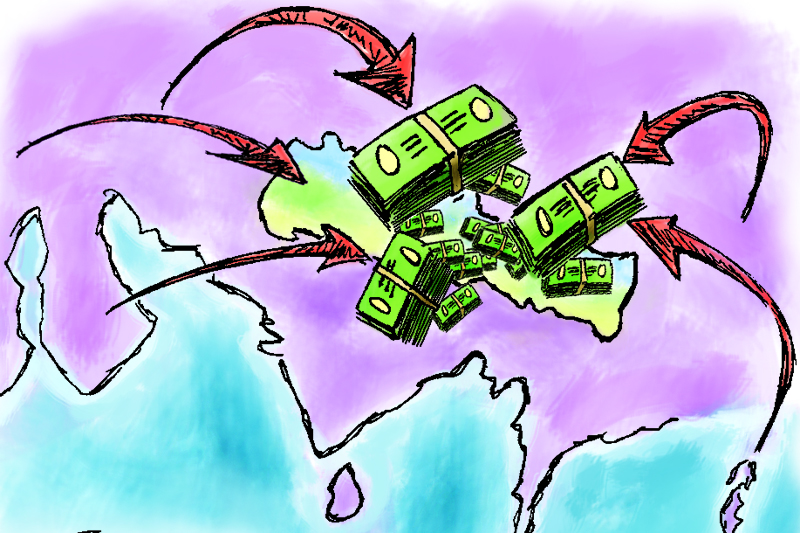Remittance inflow from Qatar likely to be adversely hit
Kathmandu, June 20
Diplomatic crisis in the Gulf has resulted in food price hike in Qatar, which, in turn, is likely to affect remittance flow from there in the coming days.
“Even though it’s too early to gauge the effects on labour demand from Qatar, the cost of living there is quite high and will go up even further as food prices rise,” said Govinda Mani Bhurtel, joint secretary of the Ministry of Labour and Employment (MoLE). As migrant workers will be forced to dish out more on food and other essentials, remittance inflow from there is also likely to be affected.
Share of money migrant workers send
Country
2014-15
2015-16
Saudi Arabia
19.20%
33.10%
Qatar
24.20%
30.80%
Malaysia
39.50%
14.60%
UAE
10.50%
12.60%
Kuwait
1.90%
2.40%
Qatar is the second largest contributor of remittance after Saudi Arabia, accounting for over 30 per cent of the total remittance inflow of Rs 665.06 billion in the fiscal 2015-16. According to Nepal Rastra Bank data, remittance from Qatar has been increasing since the last few years, as the number of Nepali migrant workers leaving for the Gulf country has increased significantly, along with the booming construction sector there.
Earlier, an unskilled labourer working in Qatar used to save an average of 800 to 900 riyal on a monthly basis, as per Bimal Dhakal, president of the Nepal Association of Foreign Employment Agencies. “Decline in savings of workers may hit remittance inflow if the situation prolongs.”
There are around 500,000 Nepalis working in Qatar and most of them are employed in the construction sector.
With Nepal’s trade deficit ballooning every passing year and remittance growth already slowing down with a global drop in oil prices, reduction in flow of funds from Qatar could exert additional pressure on Nepal’s balance of payments situation.






